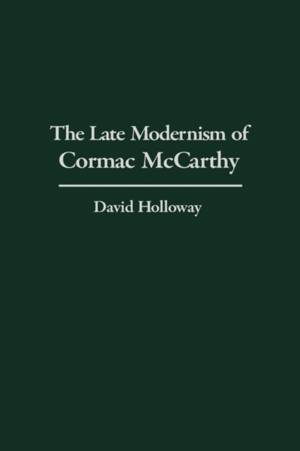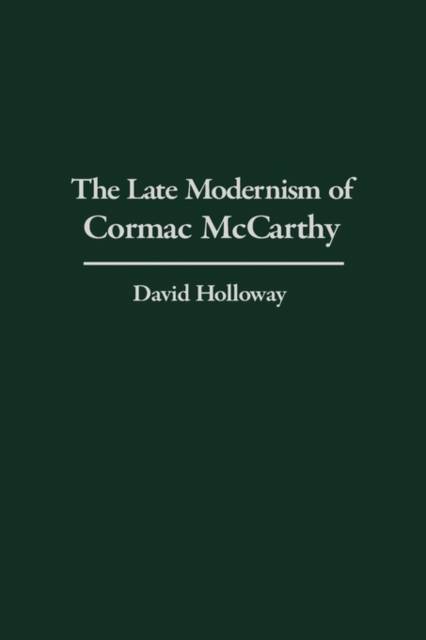
Door een staking bij bpost kan je online bestelling op dit moment iets langer onderweg zijn dan voorzien. Dringend iets nodig? Onze winkels ontvangen jou met open armen!
- Afhalen na 1 uur in een winkel met voorraad
- Gratis thuislevering in België vanaf € 30
- Ruim aanbod met 7 miljoen producten
Door een staking bij bpost kan je online bestelling op dit moment iets langer onderweg zijn dan voorzien. Dringend iets nodig? Onze winkels ontvangen jou met open armen!
- Afhalen na 1 uur in een winkel met voorraad
- Gratis thuislevering in België vanaf € 30
- Ruim aanbod met 7 miljoen producten
Zoeken
Omschrijving
Through close examination of the formal as well as thematic organization of Cormac McCarthy's eight novels, this volume offers a radically new assessment of the work of an author who has often been described as one of the greatest contemporary American novelists. In opposition to existing McCarthy scholarship--which tends to concentrate on the regional dimensions of his work, viewing it within the literary and mythopoetic traditions of the South and Southwest--Holloway argues that McCarthy's full significance can only be understood if his work is contextualized within the broader political, economic, and intellectual discourses of the period in which his novels have been produced. Drawing on the ideas of Marxist thinkers such as Fredric Jameson, George Lukács, and Jean-Paul Sartre, he shows how McCarthy's late modernism resists many of the postmodern assumptions about literary narrative that have come to shape our understanding of aesthetics in recent times.
Specificaties
Betrokkenen
- Auteur(s):
- Uitgeverij:
Inhoud
- Aantal bladzijden:
- 216
- Taal:
- Engels
- Reeks:
Eigenschappen
- Productcode (EAN):
- 9780313322273
- Verschijningsdatum:
- 30/07/2002
- Uitvoering:
- Hardcover
- Formaat:
- Genaaid
- Afmetingen:
- 153 mm x 253 mm
- Gewicht:
- 512 g

Alleen bij Standaard Boekhandel
+ 403 punten op je klantenkaart van Standaard Boekhandel
Beoordelingen
We publiceren alleen reviews die voldoen aan de voorwaarden voor reviews. Bekijk onze voorwaarden voor reviews.











